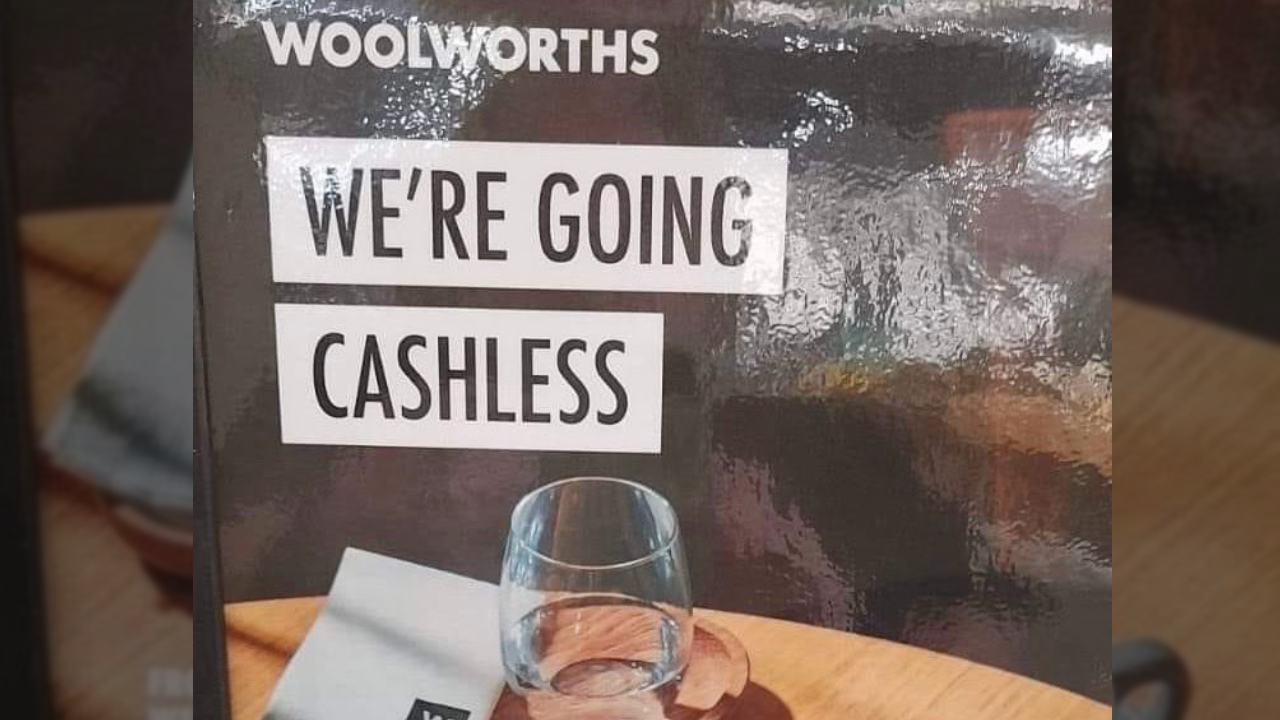- Woolworths says that from 16th January its W Cafe restaurants will not accept cash payments.
- Social media users on X have had a meltdown, with many saying that the decision alienates a portion of customers.
- Woolworths says the decision is influenced by a pursuit of increased safety, something that the Gauteng provincial government was also looking into in 2023.
The latest social media controversy that has South Africans riled up involves retail chain Woolworths, but this turn doesn’t include alleged ties to Israeli companies, nor controversial BEE policies, but a decision to remove the ability to pay with cash at certain outlets, and only at Woolworths Cafes.
“We’re going cashless,” announces a poster from Woolworths South Africa, whose parent company resides in Australia and makes two-thirds of its profits from South African customers, “From 16 January 2024 we will no longer accept cash, as we’ve joined a global responsible business initiative that prioritised customer and staff safety,” the poster continues.
Calm yourselves: Woolies’ cafés only. pic.twitter.com/5DtkCvwCea
— Wendy Knowler (@wendyknowler) January 7, 2024
The decision only applies to the W Cafe restaurant brand of the company and not its grocery or clothing retail outlets. It was met with persistent backlash online, with many users telling the company’s SA X account that they would be losing business because of it. The account has been assuaging angry Xers all morning that the initiative only applies to W Cafe.
Most riled-up customers say that the removal of cash payments could alienate a portion of its customer base. There is also a possibility that if the initiative works well, the company may expand cashless payments only to its retail outlets.
“Woolworths and it’s card only purchase is discriminatory,” says one user about the decision to go cashless. “South Africa is not yet ready for such initiative. It means a certain group of people who don’t usually deposit money to their accounts wouldn’t be able to purchase at all.”
Woolworths isn’t alone in adopting cashless policies, or even considering them. Both private and public enterprises are looking at going cashless due to the increased safety these digital services allow. In October last year, a spate of high profile cash in transit van robberies in Gauteng has the provincial government urging organisations across the province to consider going cashless.
“If we remove cash and convert our province into a cashless environment this madness will be minimised. The retail industry must heed our call to move towards cashless. The hospitality industry especially hotels are cooperating nicely with us. We are a highly digital province,” said Gauteng Premier Panyaza Lesufi at the time.
The introduction of a cashless South Africa may be closer than you may think, especially in provinces like Gauteng, the Western Cape and KwaZulu-Natal. Fintech has never been so popular locally as it is now.
New innovations remove friction from financial management, and allow for greater control of your money. Certain fintech areas in South Africa are even more advanced than what one can find in the US, for example, as adoption of electronic fund transfers (EFT) in the developed nation still lags behind adoption in South Africa.
A MasterCard study published at the beginning of 2023 found that 95 percent of SA consumers used at least some form of digital payment technology in 2022. Moreover, 71 percent said that they use fintech for five or more finance-related tasks that same year.
A vast majority (97 percent) of respondents said that they were likely to use a digital payment method in the next 12 months. South Africa is still behind the likes of Sweden, however, as cities like Stockholm are now almost entirely cashless, influenced also by the increased safety of digital money movements over cash-based economics.
[Image – @WendyKnowler on X]

